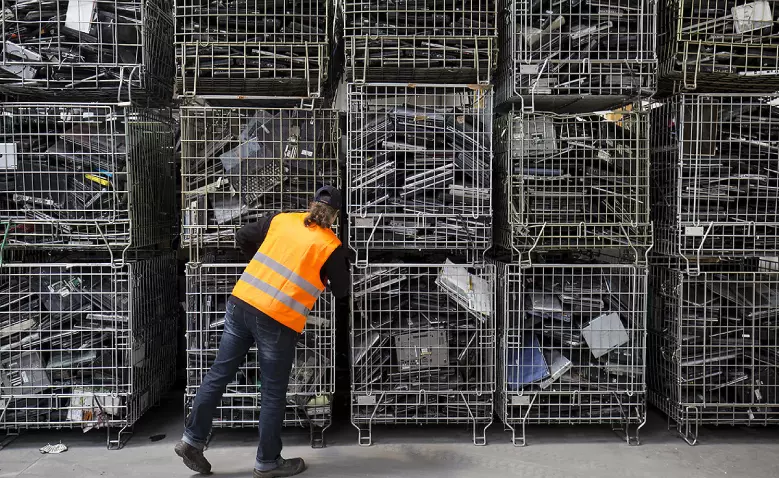What is WEEE? Definition
WEEE (waste electrical and electronic equipment), or W3E, refers to all end-of-life electrical appliances such as computers, telephones, household appliances, televisions and so on. The amount of this waste is increasing massively, making it a major source of raw materials to recover and reuse.
Certain materials contained in WEEE present a danger to the environment. Once used, and if not properly collected and processed, they can be a source of pollution by heavy metals, PCBs (polychlorinated biphenyls) that linger persistently in the environment, or gases with high global warming potential.
With a recycling potential of over 80%, WEEE is an extraordinary source of resources: containing not only plastics and ferrous metals, but also precious metals such as gold, silver, platinum, and rare earth elements such as lanthanum and neodymium, which are in very high demand around the world.
WEEE recycling is also an important source of local employment, in particular for people in the sheltered and supported employment sectors.
Our WEEE treatment solutions rely on highly effective processes
Our operational and industrial processes deliver guaranteed high level performance and treatment capacity.

One minute. That’s all we need to process a flat-screen television. The process is protected by five patents.
Our WEEE processing service can be broken down into five key stages:
- equipment collection with inspection of all traceability documentation;
- on-site reception, weighing, initial sorting of complete devices by type;
- preparation, removal of electrical wiring;
- decontamination, complete mechanical or manual disassembly to extract materials for recovery;
- sorting of recovered materials for dispatch to specific reuse pathways.
This means we can supply our industrial customers with secondary raw materials that meet fixed quality criteria, and at very competitive prices.
- Extending the lifecycle of materials
- Extracting value from the sorting chain
- Preserving rare minerals and resources
Are you a collection agency or eco-body? What are the benefits for you?

We did it!

France
Our WEEE treatment center in Saint-Sylvain d’Anjou, near Angers in France, can treat as much as 80,000 metric tons of used appliances every year. The recovery rates achieved make this plant one of the most efficient in France: 94% for large appliances, 91% for small appliances and 88% for screens. This trailblazing site for recovering plastics uses a unique process to sort around ten different polymers, with guaranteed purity rates of over 99%.

Working with our partner, the SEB Group, we have created the first complete circular economy loop for small household appliances. We recover materials and value from WEEE collected by an eco-body called Eco-systèmes. The SEB Group then uses these recycled raw materials to manufacture new appliances for sale in stores.


